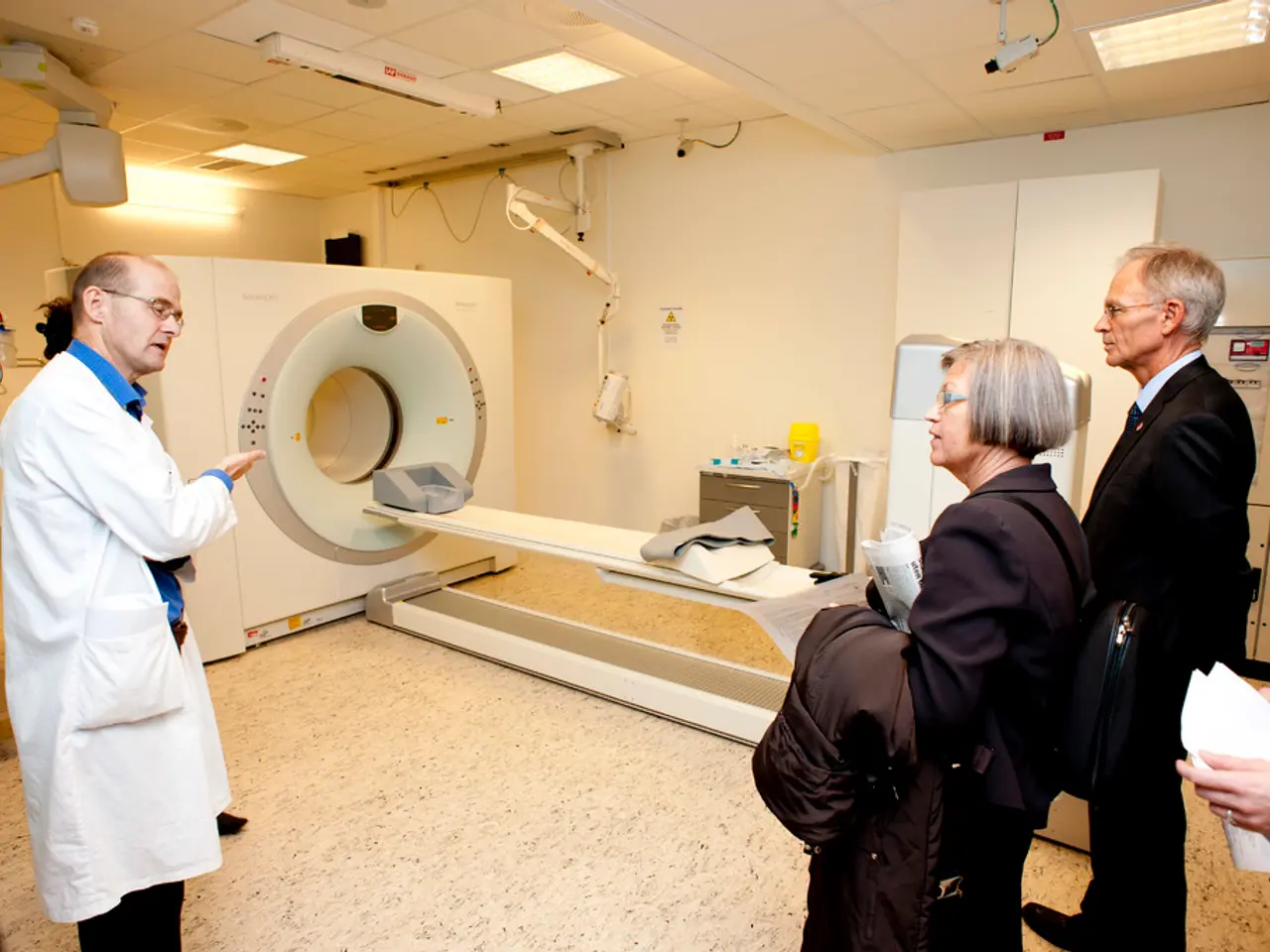Exploring the Mechanisms of Antidepressants: The Scientific Foundation for Depression Therapy
Depression, a mental health disorder affecting millions worldwide, is associated with an imbalance or dysfunction in the levels and activity of certain neurotransmitters, particularly serotonin, norepinephrine, and dopamine [3]. In an effort to restore balance and alleviate symptoms, various classes of antidepressants have been developed, each targeting specific neurotransmitter systems in the brain.
## Classes of Antidepressants and Their Mechanisms
1. **Selective Serotonin Reuptake Inhibitors (SSRIs)** - SSRIs primarily work by blocking the reabsorption of serotonin in the brain, thus increasing serotonin levels. This action helps stabilise mood and reduce symptoms of depression [1][4][5]. Examples include Fluoxetine (Prozac), Sertraline (Zoloft), Citalopram (Celexa), and Escitalopram (Lexapro) [4].
2. **Serotonin and Norepinephrine Reuptake Inhibitors (SNRIs)** - SNRIs not only block serotonin reuptake but also inhibit the reuptake of norepinephrine. This dual action enhances both serotonin and norepinephrine levels in the brain, which can be beneficial when SSRIs are not effective [1][4][5]. Examples include Venlafaxine (Effexor) and Duloxetine (Cymbalta).
3. **Tricyclic Antidepressants (TCAs)** - TCAs block the reuptake of both serotonin and norepinephrine but also have significant anticholinergic side effects due to their action on multiple neurotransmitter receptors [1].
4. **Monoamine Oxidase Inhibitors (MAOIs)** - MAOIs work by inhibiting the enzyme monoamine oxidase, which breaks down monoamine neurotransmitters like serotonin, norepinephrine, and dopamine. By preventing their breakdown, MAOIs increase the levels of these neurotransmitters in the brain [1].
5. **Noradrenergic and Specific Serotonergic Antidepressants (NaSSAs)** - NaSSAs have a dual action; they increase norepinephrine and serotonin levels by blocking certain receptors that inhibit neurotransmitter release. They also block serotonin receptors (5-HT2 and 5-HT3) to enhance specific serotonin-mediated neurotransmission [2].
6. **Atypical Antidepressants** - These drugs often have unique mechanisms of action that may involve multiple neurotransmitter systems. They can be used when other antidepressants are ineffective [1].
The development of new antidepressant treatments may offer faster relief, fewer side effects, and better outcomes for individuals living with depression [7]. For instance, rapid-acting antidepressants like ketamine have revolutionized depression treatment, producing antidepressant effects within hours or days [2].
Moreover, advances in genetic testing and biomarker identification may lead to more personalised antidepressant prescribing [3]. This tailored approach could potentially improve treatment efficacy and reduce the likelihood of adverse effects.
It's worth noting that depression requires proper diagnosis and treatment, and should be managed with psychotherapy and lifestyle changes in addition to medication [6]. In cases of treatment-resistant depression, combining different antidepressants or augmenting with other medications may provide additional benefits [4].
Research in this field continues to advance, offering hope and effective strategies for managing depression and improving quality of life [8]. Sources of recent research on antidepressants and depression include The Lancet, Nature, and Experimental and Clinical Psychopharmacology.
Inflammation may also contribute to some cases of depression, and there may be alterations in the connectivity between different brain areas in depression [1]. As research progresses, a more comprehensive understanding of the complex interplay between brain structure, function, and depression will undoubtedly emerge.
- Therapies and treatments for mental health, such as antidepressants, aim to restore balance in neurotransmitter systems that are dysfunctional in individuals with depression, particularly serotonin, norepinephrine, and dopamine.
- Selective Serotonin Reuptake Inhibitors (SSRIs) are a class of antidepressants that work by blocking the reabsorption of serotonin in the brain, increasing its levels and helping stabilize mood, reducing symptoms of depression.
- Anxiety and stress can impact sleep, and this relation may be linked to the imbalance in neurotransmitters like serotonin, norepinephrine, and dopamine that is associated with mental health disorders such as depression.
- Psychology, science, and health-and-wellness communities are exploring personalized antidepressant prescribing through genetic testing and biomarker identification, which could potentially improve treatment efficacy and reduce adverse effects.
- In the field of mental health, science continues to advance, offering new antidepressants like ketamine that produce antidepressant effects within hours or days, as well as a more comprehensive understanding of the complex interplay between brain structure, function, and depression.




